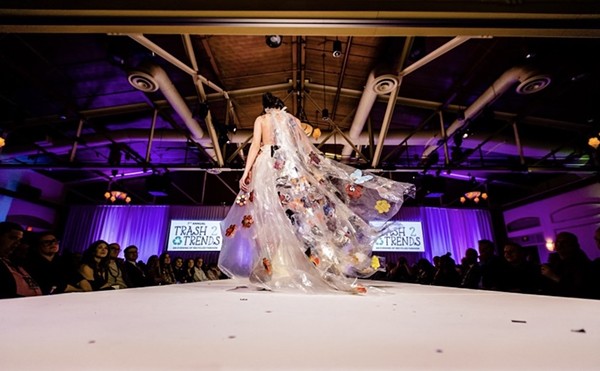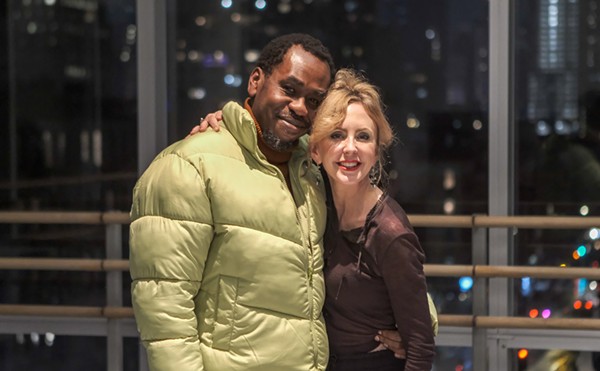Director Shola Lynch was already in early screenings of her completed documentary about Shirley Chisholm when the former congresswoman died Jan. 1 at the age of 80. The sudden demise of Chisholm – best known as the first black woman to run for president of the United States – makes more precious the footage that Lynch captured of her in the year before her death and is interspersed throughout Chisholm '72 – Unbought & Unbossed.
It's reassuring to see that Chisholm, as she matured, remained a handsome woman with class, style and a razor-sharp vocabulary. Her later-in-life perspective marks the film as a compelling historical document, balancing the parade of pertinent interviews with foes and friends, and archived campaign footage. For the majority of us who never saw Chisholm in repose, we get to witness her wicked gift for mimicry and biting wit. She was a very funny lady, a natural raconteur with a sharp eye for fashion. (It's fun to revisit the bold stripes and patterns on her modestly cut business suits). All of that seems a bit out of context with her schoolmarmish demeanor, which dates back to her no-nonsense education and upbringing in Barbados. Her father, we also learn, was a strict union man and a huge fan of Marcus Garvey and President Franklin D. Roosevelt.
Even among notable blacks (Rev. Walter Fauntroy and Ron Dellums of the Black Congressional Caucus) and feminists (Gloria Steinem and Bella Abzug) of the politically charged 1970s, Chisholm stirred derision and left many questioning her motivation and sanity. Meanwhile, she raised a groundswell of support among the common folk, appealing to women, blacks and anyone else suffering under civil-rights hypocrisies. Chisholm's conviction was simple: Vote and assert your rights. Her truth gave her power. She remained firm that she answered the right call at the right place and time in 1972.
Lynch's film maintains a tight focus on the '72 campaign, from Chisholm's candidacy bid to a showdown at the Democratic National Convention in Miami, where she eventually conceded her delegates to George McGovern – but not before she defied the odds and the skeptics. Lynch's approach to the documentary is no more naive than were Chisholm's presidential aspirations. It was a hellish time: Nixon was in office and the war in Vietnam was tearing the country apart, as were civil-rights disputes from segregation to women's liberation. Rapid-fire film montages from those sensational times help capture the mood, as does the soundtrack of soulful 1970s music. (Helen Reddy's anthem "I Am Woman" has never sounded so poignant.)
As portrayed by Lynch, the potency of Chisholm's legacy is in the woman's absolute persistence. Step by step, Chisholm moved forward – sometimes easing around intimidating obstacles, sometimes pushing her way through. Ultimately, the 1972 presidential election (which featured more than a dozen candidates) saw monumental, almost miraculous, change in the national voting process. Chisholm was caught up in that change, both directly and indirectly. The voting age was amended from 21 to 18, drawing in the demographic that was dying in Vietnam. "Segregation forever" proponent Gov. George C. Wallace of Alabama was shot and confined to a wheelchair. Chisholm won a federal court order forcing her inclusion in televised debates, earning her valuable airtime in front of a national audience. California abandoned its winner-takes-all policy, instead carving up its 271 delegate votes in proportion to the popular vote, opening the door for Chisholm to move forward to the DNC.
In Chisholm '72, the gray-haired politician says she wants to be remembered as a woman who fought for progress in the 20th century, "a woman who dared to be a catalyst of change," she says.
Lynch has succeeded in memorializing Chisholm's desired legacy. "Our goal was to make a documentary as passionate and powerful as Chisholm herself," the filmmaker says in her press material. "Her story is an important reminder of the power of a dedicated individual to make a difference."
















